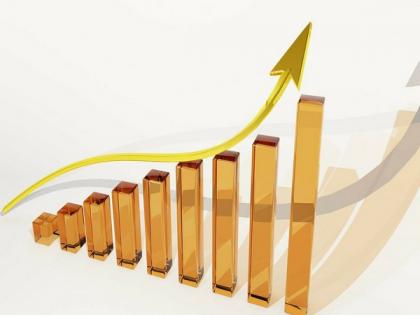Regulatory reforms needed for corporate growth in Korea: Industry leaders
By ANI | Updated: September 5, 2025 12:25 IST2025-09-05T12:20:56+5:302025-09-05T12:25:03+5:30
Seoul [South Korea], September 5 : Only four out of every 10,000 small- and medium-sized enterprises (SMEs) advance to ...

Regulatory reforms needed for corporate growth in Korea: Industry leaders
Seoul [South Korea], September 5 : Only four out of every 10,000 small- and medium-sized enterprises (SMEs) advance to mid-market status. Business leaders and Industry chambers advocate the need for reforms for corporate growth, as per a report by Pulse, the English service of Maeil Business Newspaper Korea.
Speaking at the launch of the Corporate Growth Forum in Seoul on Thursday, Korea Chamber of Commerce and Industry (KCCI) Chairman Chey Tae-won called for regulatory reform, stating that step-by-step regulations imposed at each growth stage are choking momentum.
"As long as these size-based rules remain, some firms choose to stay small or even split operations to avoid moving up and facing more restrictions," Pulse quoted Chey.
Citing data from KCCI, the report showed large companies posted average annual sales growth of 10.5 per cent between 1994 and 2004 and 10 per cent between 2004 and 2014. The rate, however, plunged to 2.6 per cent from 2014 to 2023.
SME growth also slowed, dropping from 8.7 and 9.3 per cent in earlier decades to 5.4 per cent more recently. Between 2020 and 2023, just 0.04 per cent of SMEs grew into mid-market firms, while only 1.4 per cent of mid-sized companies became large caps.
Citing research by KCCI and Professor Kim Young-ju of Pusan National University, the report identified 343 differential regulations across 12 economic laws and 6,000 punitive economic provisions.
Chey urged a shift away from policies that protect companies solely for being small, toward incentives that reward those pursuing growth.
Song Seung-heon, managing partner of McKinsey Korea, agreed, noting government aid alone has limits. Song highlighted the need for market-based safeguards and rewards that help firms build sustainable growth plans.
About 30 officials and business leaders attended the summit, including Deputy Prime Minister and Finance Minister Koo Yun-cheol, Federation of Korean Industries Vice Chairman Kim Chang-beom, Federation of Middle Market Enterprises of Korea Executive Vice Chairman Lee Ho-joon, Employment and Labor Minister Kim Young-hoon, First Vice Minister of Trade, Industry and Energy Moon Shin-hak, Democratic Party Representative Choi Ki-sang, and People Power Party Representative Kim Eun-hye.
Koo pledged the government would "mobilize all available resources" to help Korean companies compete globally.
Disclaimer: This post has been auto-published from an agency feed without any modifications to the text and has not been reviewed by an editor
Open in app